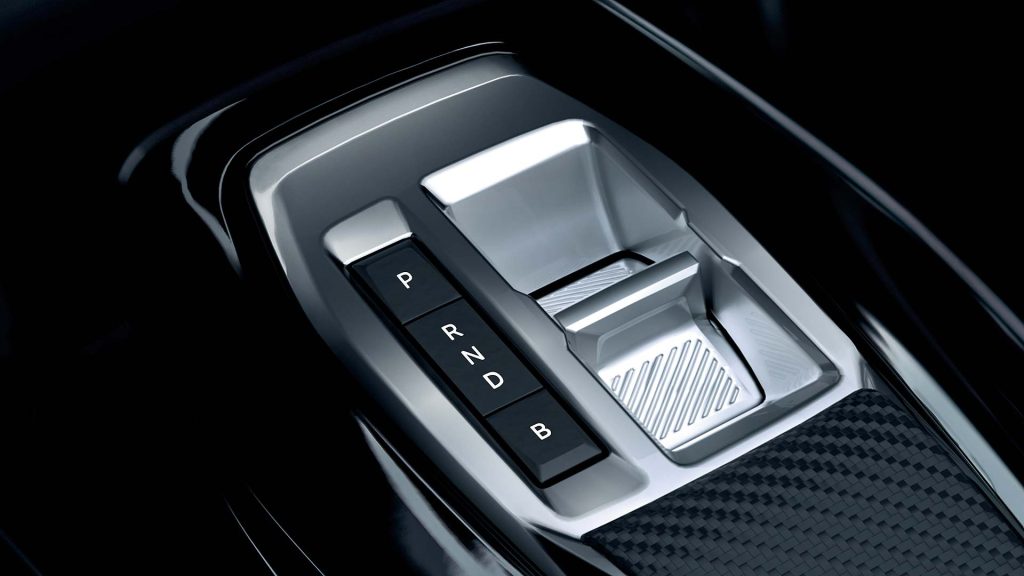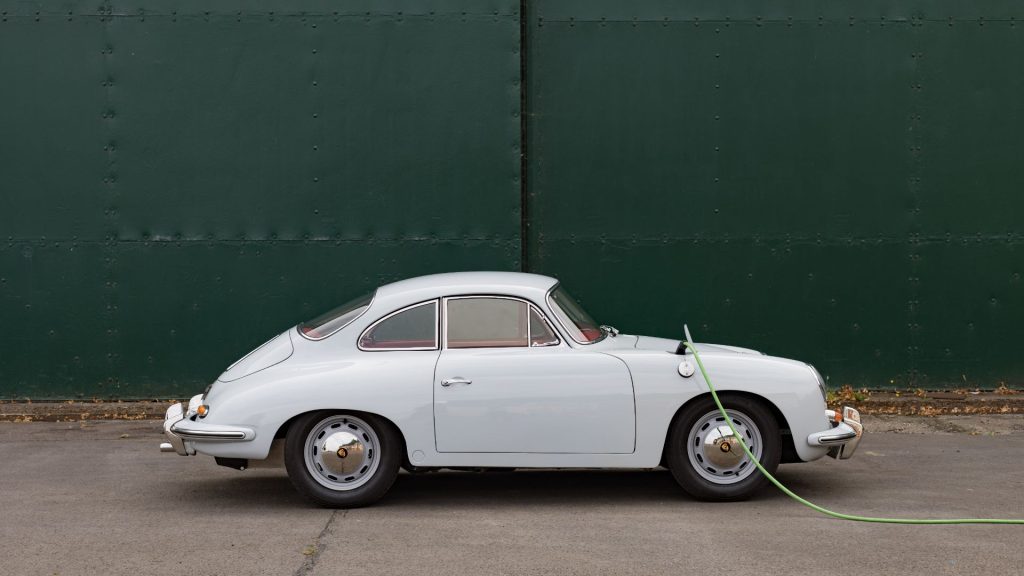Most electric cars are essentially automatic, meaning there is no need for the driver to change gear. You simply engage D (for Drive), press the accelerator pedal and let the battery and motors do the work. Alternatively, you can select R (for Reverse) if needed.
There’s much more to it than that, though, not least because a traditional automatic transmission in a petrol or diesel car has several gears, whereas the vast majority of electric cars use a single gear.
Why do electric cars have a single gear?

To explain why most EVs use a single gear, let’s start with why petrol and diesel cars have multiple gears.
Put simply, traditional engines generate usable power and torque within a narrow band of engine speed, so they require multiple ratios to keep them within this band at different road speeds. It’s why you use first gear to pull away, then fifth or sixth on a motorway.

Electric cars don’t have this problem and can accelerate from standstill to motorway speeds (and well beyond, in most cases) using a single gear. They leave the factory with a gear ratio that delivers the best blend of acceleration, top speed and driving range.
Do electric cars have a reverse gear?
Not as such. Instead, an electric car has a reverse switch, designed to look like a traditional gear selector. Selecting R simply switches the direction that the electric motor (or motors) will spin, enabling you to move the car backwards.

In addition to R (Reverse), an electric car will have N (Neutral) and P (Park) settings, while some vehicles offer different driving modes as well. Examples include S (Sport) for enhanced performance and E (Eco) for when you want to maximise the car’s range.
Some high-performance electric cars, such as the Audi E-tron GT and Porsche Taycan have two-speed gearboxes. The first gear is used for acceleration, enabling faster starts from a standstill. Then the second gear is designed for high-speed cruising.
Can an electric car have a manual gearbox?

It’s not currently possible to buy a new electric car with a stick shift. That could change in the future, but in the meantime, aftermarket examples do exist – such as the simulated four-speed manual ‘box fitted to Electrogenic’s Porsche 356 EV (pictured above).
Driving the classic Porsche in 2022, our Tim Pitt said: ‘I start in second gear, as the electric motor’s plentiful torque means first is only needed for maximum-attack getaways. You don’t use the clutch to pull away or stop, only for swapping ratios on the move, and the car is impossible to stall.
‘Gear changes need to be quite steady and deliberate, or you risk the motor whirring up to its 10,000rpm limiter, but the 356 certainly keeps you busy. And that’s half the fun of a sports car, right?’
Toyota is developing a simulated manual transmission for its next generation of electric cars, saying it wants EVs to be ‘fun to drive’. And Hyundai is already there with the Ioniq 5 N, which recreates the ratios of an eight-speed dual-clutch manual gearbox – complete with the ability to bounce off the rev limiter if you shift too slowly.
How do you drive an electric car?

Driving an electric car is remarkably easy. In most cases, you simply press the ‘Power’, ‘Start’ or ‘On’ button, select Drive or Reverse using the selector, then press the accelerator pedal. From there, it’s just like driving a traditional automatic car, although you will have to get used to regenerative braking, which sends energy to the battery when you are slowing down.
The other feeling you’ll need to get accustomed to is the calmness of the drive. Although an electric car can’t do anything about the state of our roads – and you’re no doubt aware of the near-silent driving experience – the biggest surprise may be the wonderfully smooth way these vehicles can (automatically) speed up and slow down.
ALSO READ:
How much road tax will I pay for an electric car?

